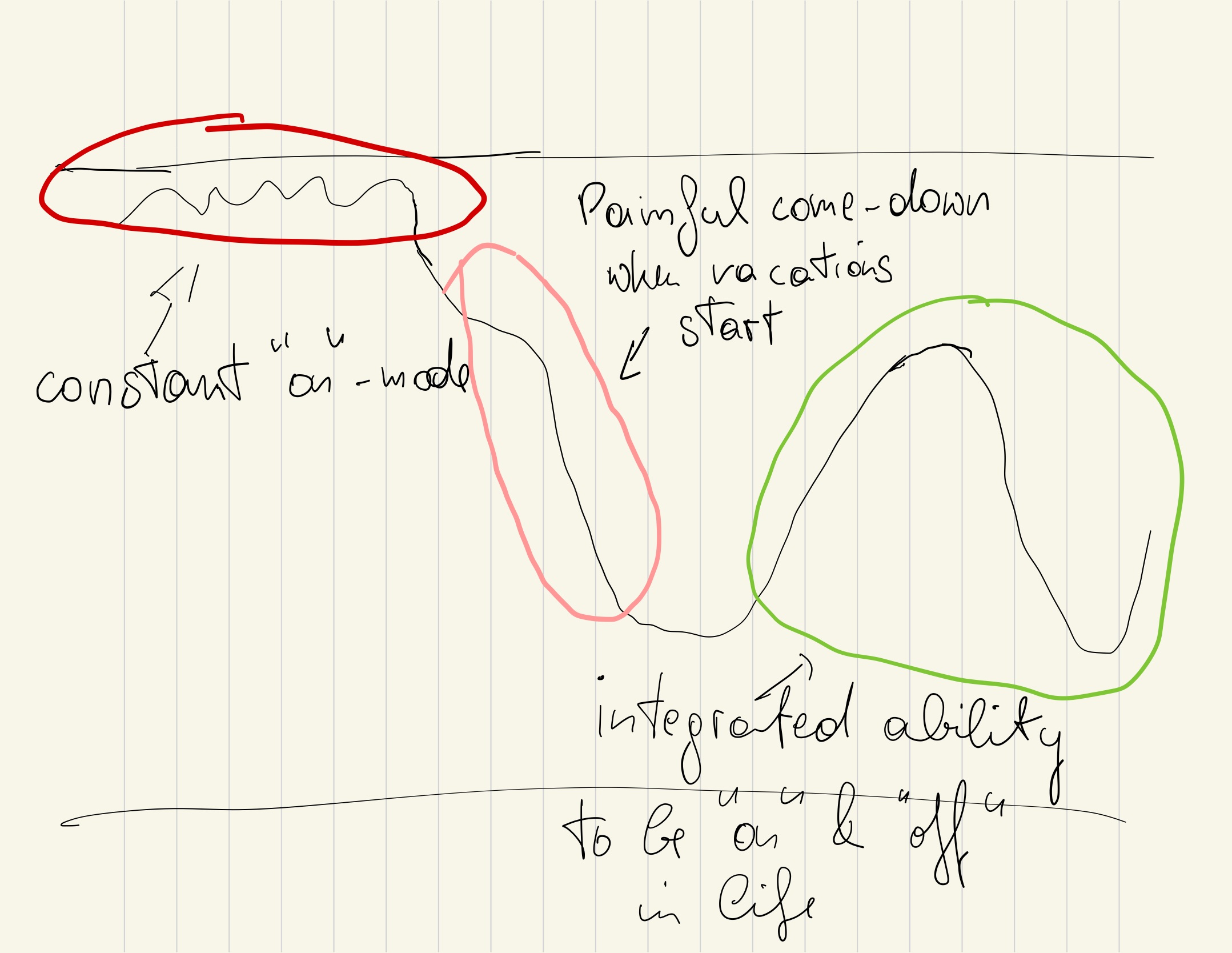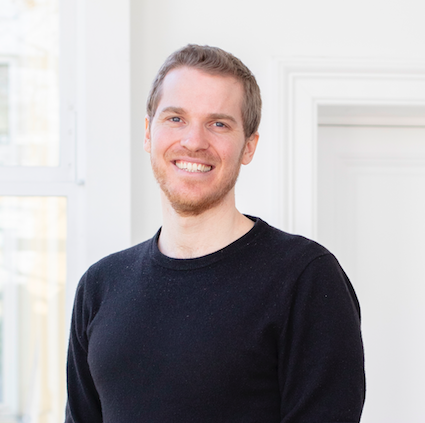“You wouldn’t want to be me.” is the line Elon Musk tells Joe Rogan about his life. Many of us see the successes and the outward experiences people produce and think up. Yet, few of us get to see what it’s like on the inside of that person’s body or day to day life.
It may be hard to imagine that it wouldn’t be fun and enjoyable to live Elon Musk’s life for a day. But I do believe him. My experience of working with hundreds of successful and wealthy people over the years as their coach aligns with this. Although likely not to the extreme that Elon Musk experiences this, there are a lot of similarities.
If you’re out there living your life, hoping to get rich, famous, and successful one day, maybe some of these lessons can be of help.
I dug into my memory and notes of having coached hundreds of people, often millionaires, some pro athletes, successful and wealthy entrepreneurs. I wanted to summarize the main points that most of them struggle with to become happy and fulfilled.
This is not to say that you might not want to fulfill your dreams of wealth, success, and fame in whatever way. What I’m hoping to share is that along the way of that journey, taking into accounts some of the points below helps you have both – success AND happiness.
1. Celebration & Gratitude
An underlying reason why most people become successful is their ability to stay laser-focused on solving a particular problem. At first, they may be solving that problem poorly. Over time, they get better and better at it. Eventually, they are so good that their skill in solving that particular problem that it becomes invaluable. Whether the problem you’re solving is that of writing code, singing a song, skateboarding, playing basketball or helping people search for things on the internet like Google doesn’t really matter. As long as it’s a problem that plenty of others have or find extremely important to be solved for them.
This hyper-focus on problem-solving often leaves little room to take a step back, sit down and relax. Few learn the skill to in fact celebrate and feel grateful for all that you’ve received and achieved in life. Too quickly when successful people attempt to do that kind of celebration and relaxation, their problem-solving mind kicks back in. They need to get back to work to “keep at it”.
Over the years from working with clients and from my own life, I’ve observed that an inability to be able to celebrate and feel gratitude can have a tremendous impact on one’s happiness and enjoyment of life. When we become so tightly wound-up that all we do is solve problems, this tightness translates into a constriction in our bodies and leaves us little room to be relaxed, celebrate and enjoy life.
There is plenty of research that backs up the fact that regularly practicing gratitude and celebrating one’s achievements is powerful. It helps us to counter the survival instincts of our brains that are constantly looking for the next danger and the next problem to solve. It sustainably changes our brains in fact.
Exercise
If you want to counter this in your own life, take a piece of paper and write at the top: What am I grateful for that happened in the last 365 days? Whenever I do this exercise, I’m surprised at how many things I can list. Quickly, I feel relaxed and grateful inside, which makes life a whole lot more enjoyable.
2. Rest & taking time off
Surprisingly, this is one of the scariest things that I support some of the CEO and startup founder clients on when it comes to coaching. Committing to a week or two regularly throughout the year, where they take time off for themselves completely, with no work, no emails is terrifying for many. Going from “doing”, pushing, moving all day to simply “being”, resting, enjoying a glass of water or the sound of the trees is hard.
When our bodies and particularly our minds are so used to be in constant movement, moving into rest can feel like you are dying. Although most people look forward to vacations and days off, most successful people I know dread them.
If this is you, allow yourself to feel the difficult feelings that come with coming to rest for a while. That experience is often particularly painful when you’re in a peaceful and tranquil environment around you, but your mind on the inside is still churning away and spinning its wheels. This disconnect between the outside and inside can feel deeply disorienting.
From there, give yourself time to ease into a vacation or period of “non-doing”. Going cold-turkey can feel like it’s too much, which is why you might not take any time off at all. Maybe allow yourself to work half-days the first two or three days and then switch off fully. Make a plan and then jump into the time off knowing that it might not be just fun and relaxing, simply because you’re no longer working.

3. Being passive, yet alert and awake
A successful founder recently came to me and said that the most difficult time of his life is when people he cares about in his life have problems and he can’t help them solve it. This is when he breaks down completely.
I find this a very common occurrence with the successful people I coach. Surprisingly, as business and responsibilities grow, the ability to be passive and let things come to you without immediately jumping into action becomes more and more important, both to live a fulfilled life, but also to grow and expand one’s business and letting other people rise up to meet the challenges at hand.
Being passive, although interwoven with taking rests and practicing gratitude and celebrations, is different from that it asks us to be fully present and alert, although we are not taking action. This can take the form of deeply listening to a team member or executive on your team who is struggling, or hearing out a customer who is complaining without immediately rushing to fix their problems.
The power of learning to be passive is so invaluable because as we allow ourselves to just take in what is happening around us, we become much more acute observers as to what is actually going on. Said customer might not need any of your help to solve their problem, but simply wanted to be heard for the frustration that had more to do with their own company’s setup and less with your solution. Said executives might just need someone to express his own anger and sadness to, so they can have a moment of pause themselves to come to their own conclusions.
The skill of being passive, yet alert and awake is one that takes practice and can come from many different places, including meditation, coaching, therapy, dancing or journaling. As we learn to make space for the important things in our lives without reacting to them with a fixing mindset, often magically a lot of untangling happens on its own and we get to continue to stay relaxed and enjoy life.
4. Relationships: the circular kind, not the transactional one
I enjoyed watching “The last dance” documentary that chronicles Michael Jordan and the Chicago Bulls’ win of the NBA title. Seeing it, it’s also clear to me how difficult it was for Jordan to have meaningful and deep relationships. This is to say outside of his transactional relationships with other players. And that was what he was going for, he wanted to win, not make friends. If we want to become happy and not just successful, the famous, 80-year-old Harvard study concludes that relationships here are the key.
From my own life, I remember that when I stepped away from the software company I co-founded a big void opened up. We went $0 to $15m in annual revenue in a short number of years. I had succeeded in building a business. But deep, meaningful relationships were almost non-exist in my life. When I woke up to that realization, I noticed how miserable I was in many ways.
Most successful people I know struggle with building great relationships. They’re often great at building transactional types of relationships or “business” relationships as it’s often called, where the sole purpose of the connection often rests on furthering someone’s problem-solving efforts. Not a bad thing at all!
Of course, most people say they’d rather cry in a Bentley than in a Corsa about the fact that they don’t have any friends or a lasting relationship, but as with many things in my coaching practice, I’ve wondered why not have it all? And by all, I mean everything that it is that you personally want from this life.
When success is your focus, relationships often suffer. To unlearn that, I often suggest my clients take a very, very long-term view of their lives and businesses. This has two powerful effects. It helps them to reconnect more deeply again to their purpose of why they are doing what they are doing. Most often, this has fundamentally something to do with supporting other people. And from there, they see that investing time and energy into powerful relationships is good for business and a happy and meaningful life.
Question
If this resonates with you, you might want to begin with simply exploring the question: What are the kind of relationships I deeply wish to have in my life?
5. Trusting others
Most successful people I know and coach, often have deeply rooted trust issues. They have grown up in a world, where they had to constantly fight and prove themselves against all odds. On the one hand, this makes us determined and assertive in sticking to our guns when we want to further our agendas. That’s a good skill to have! Emotionally, however, this often leads to being closed up. When it comes to intimate and trusting connections with others and we become unwilling to open up again.
This lack of trusting others intimately, which is often a reason people come to coaching for me in the first place has a profound impact on people’s lives. It leads to deep loneliness and a sense of lack of self-worth and self-love. Despite the newspapers and fans maybe lauding their efforts, on the inside, these people often feel deeply alone.
To trust others means taking a risk that one might not be received well for the intentions we have. It also involves opening up to past hurts that still affect us where our trust in the world was shattered.
If you feel a generally widespread and common distrust in others and the world, see if this question brings you any insights: What do I need to open myself up again to certain people in my life that I would like to trust more?
6. Slowing down
Many successful people come to life at 100 miles an hour. This gets them far quickly and sometimes leaves them wealthy, famous, and successful. Yet, when we keep up that kind of pace for a long period of time, there’s a distinct problem that arises that I’ve noticed in hundreds of people that I’ve coached: We lose track of our purpose.
When we have our head down, only looking to take the next step as fast as possible, we stop seeing the bigger picture. From a bodily perspective, this means an ever-increasing amount of tension that we carry around with us in our bodies. We get tightly wound up as all we’re trying to do is just put the next foot in front of us.
In many sessions with my clients often all I do is to move laterally. What I mean by that is that we don’t do any more walking further forward toward a goal or a mission. Instead, I invite them to pause and to move sideways. What else is here as you are saying that? Is a common question I might use to get them to reflect on that. And then again: What else? As we keep moving sideways and stop moving forward, slowly, we can move our heads up again and begin to look around. Oh yes, there’s the path in front of me, but there’s also the leaves from the tree on my righthand side. And the blue sky above me. And a friend to my right. And a partner and a child on my left. As we open up the bigger picture again of what is around us, we return to a place of more agency and more optionality. We can move forward again from here, in a way that is spacious and takes into account more things than just how do I place my next foot forward.
This ability to take more things into account, allows us to meet more of our needs instead of only the need of “achievement”. Community, partnership, love, relaxation, wonder, sexuality, play, and other needs can now emerge again and be met. This doesn’t mean that achievement is now no longer a need we want to meet. It means that it can breathe more spaciously alongside others in our lives.
Naturally, this leads to more fulfillment and happiness because more aspects of our humanity are able to be expressed and fulfilled.
7. Asking for support
Usman Sheikh is a high-performing CEO and VC of his firm High Output Ventures, a friend and a former client of mine. He sent me a powerful insight after our most recent session concluding a long-term engagement. It read:
“People who support others need people who support them.”
Naturally, as leaders, founders, CEOs, what have you, most of us land in roles where we take on a lot of responsibility to support others. Our wish is to help them become successful and motivated to do their best work. Surprisingly, what happens to a lot of successful folks that I meet and coach is that few of them extend this kind of treatment to themselves. They often have sparse or inadequate support systems, where their spouses need to do a lot of emotional labor. Or they don’t have one at all and solely resort to other forms of self-regulation, like alcohol, drugs, and so forth.
Being able to ask for support requires a deep level of self-knowing. It begins with the question, what would serve me deeply in this moment? The answer might be a walk in nature, or a coaching session, or a massage or a warm water bath.
It also requires a deep level of vulnerability and self-reflection. That it’s ok to let go of the image of the lonesome warrior, shouldering the world’s problems on their own. I remember that one of the hardest things I ever did in my own life was to step foot into a therapy office a number of years ago. Although that first therapist I began working with wasn’t very helpful, the very fact that I broke that boundary of getting and asking for professional support. It opened up a huge door towards more fulfillment and happiness in my life.
Question
If you were to give yourself permission to get lots of support in your life, what kind would you find most helpful?
Final thoughts
Whether we are striving for outsized success in our lives or not, I would argue that these 7 points are something that most humans I know don’t always find so easy. And yet, each one of them has the power to contribute massively to a more meaningful and fulfilling life.
If any of them resonate with you, I invite you to follow the similar approach I offer to my clients: Big visions, small steps. What small step would support you in moving closer to some of the points on the list here? I recently saw someone share that the best they can do is sit in the grass for 45 seconds 2 times a week. I love that, that’s the kind of tiny step that’s so easy to do, and that gets you started towards the big vision you might have for yourself.
Receive my most vulnerable and powerful lessons from meeting life.
Add your details below for my weekly newsletter.

